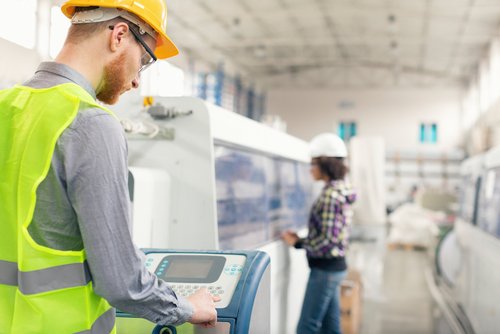Today the European Parliament will vote on the EU’s waste legislative proposals. Yet, besides setting recycling and landfilling targets production patterns also must change to avoid waste. Many German manufacturing firms already focus on saving materials. A recent company survey conducted by the Cologne Institute for Economic Research shows that there is still more potential for digitising measures relevant for a circular economy.

Circular Economy: German industry could save 2 billion euros in mineral raw materials
In many German manufacturing firms the basic course for a modern circular economy is not yet set. This illustrates a recent company survey covering almost 600 German manufacturing firms conducted by the Cologne Institute for Economic Research. Saving materials on a grand scale as early as the product design stage, through materials cycle management or new business models are not very common until now. Yet, the EU Commission’s Circular Economy Action Plan wants companies to consider waste avoidance at all stages of the value chain. Traditional efficiency-raising measures that optimise manufacturing processes are still predominant, but new techniques and materials are also used. And, the material savings potential in German industry has not been exhausted yet. In the firms’ view, they could save a further 3 to 4 per cent if they made optimum use of all technical possibilities. With reference to the value of Germany’s national and international purchases of mineral raw materials, this translates into a further material savings potential of 2 billion euros.
The increasing digital networking in complex industrial production offers new potential for avoiding waste and saving resources. However, German manufacturing firms have only rarely digitised material efficiency measures to a great extent. If they are, they tend to be used for process optimisation. Around two fifths of the firms are at least moderately digitised in relation to the most important industrial efficiency measures, namely process optimisation and the use of new techniques, but there is still more than a third that is not at all. There is still upward potential to digitise circular economy-relevant measures such as resource-saving product design, material cycles and opening up new business fields. At least every second manufacturing company reuses residue and waste materials via internal circulation systems. Nevertheless, for two fifths of these companies digital networks do not play any part and in the case of a further two fifths, the part they play is minor. Only one in ten companies has its internal materials cycles heavily digitised.
More on the topic

Digital Product Passport – Enabler of the Circular Economy
In a circular economy, a new understanding of economic activity and an alternative approach to raw materials are required. Resources should be used for as long as possible in order to reduce both the material and energy consumption as well as the waste and ...
IW
Beyond the Pandemic: How Can Countries Pave the Way for a Global Green Recovery?
As governments across the world continue to face the challenge of tackling Covid-19, the current crisis also presents an unprecedented opportunity to reboot global economies in a manner that builds more sustainable, inclusive and resilient societies, in line ...
IW